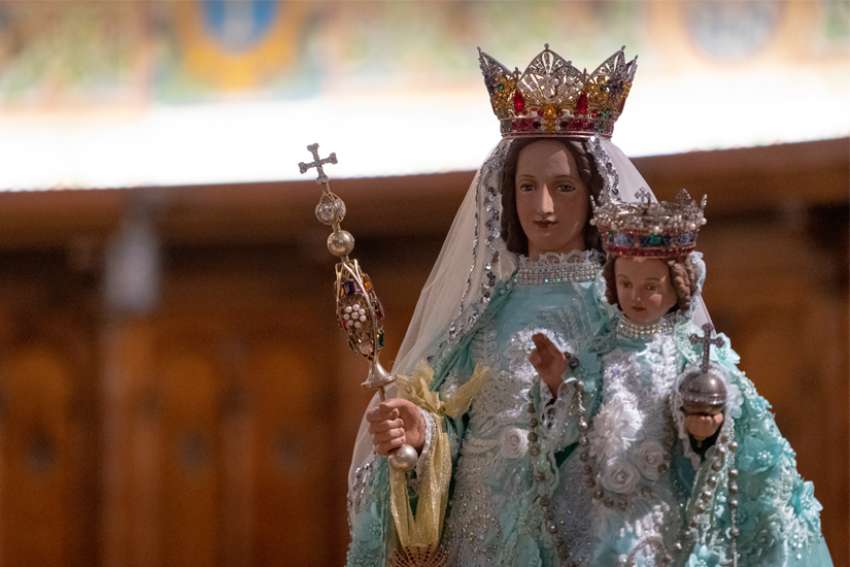Elizabeth’s greeting to Mary is auspicious. The child in her womb, John the Baptist, leaps for joy and Elizabeth declares, “Blessed are you among women, and blessed is the fruit of your womb,” words recaptured in the Hail Mary.
Mary is indeed blessed among women. Blessed first because she was the ark of the covenant, the woman who carried within herself the Son of God sent to save humanity from its sins and to bring complete liberation. Blessed also because through God’s favour she was conceived and lived her life without sin.
What are the sins of humanity? Mary addresses those in her own prayer at the Visitation, the Magnificat. Our sin is the deep division between the mighty and the lowly. The rich have hoarded the good things of creation, leaving others hungry. The proud are “scattered” in their self-focused thinking. We see such sins writ large in the political, economic, psychological and spiritual ailments of our time.
The remedy is not violent revolution. Such revolutions, beyond their voluminous shedding of blood, invariably inflict greater misery than existed previously. The remedy is for our hearts to magnify the Lord, to rejoice in God’s saving power and to recognize that all great things have their origins in the Mighty One.
Mary’s prayer is perhaps why the Church calls her the mother of mercy and the mirror of justice. She herself does not embody justice, but she reflects the mercy and justice of God so that we may know its character.
None of this is a counsel for passivity in the face of evil. Prayer and worship are not passive. Prayer is a living encounter with the Holy One; worship is giving praise and thanksgiving for God’s glory. Prayer and worship re-create our lives. We transcend our dissolute self-focus to enter a life where our love of self and others is reconfigured through love of the Ultimate Other.
In the presence of the Loving Redeemer, we cannot watch idly as others are made to suffer. Worship is the source of the wisdom and courage to speak out for greater justice in the name of the holy dignity of the human person.
That we often fail to speak out indicates not the futility of prayer, but rather that our hearts remain scattered. They may focus on God for a time, but then they regain their default position of attending to objects of desire. The continued spread of injustice testifies to the Church’s historic alignment with worldly powers as well as to her internal sin of turning offices of service into opportunities for self-aggrandizement. That political games are played in the Church with factions of insiders and outsiders is a perversion of God’s will expressed through Mary’s Magnificat.
The Church is the one great hope for the world, but we, her sons and daughters, too frequently betray that hope. Yet, Mary, the mother of the Church, is the one who restores hope.
If, in unanimity, we turned our hearts to God and away from dissolute desires, Earth would be paradise. Mary is the exemplar of what we can be — people who give birth to Jesus and who remind ourselves and others, “Do whatever He tells you.” We fall short, not only because of our desires but also due to our yearning to have our good works attributed to our own beneficence rather than to the grace of God. Once unleashed, pride knows no bounds.
Mary is the hope of humanity, the woman the poet Wordsworth called “our tainted nature’s solitary boast.” She is the living witness that through total reliance on God all things will be well in our world eternally.
But along with that, she is our advocate. Just as we ask our friends to pray for our needs and the needs of the world, we should take our concerns to the Blessed Mother. Through her motherly care for the lowly and for justice and mercy, she will take our intercessions to her son with a purity beyond our capacity. If our motives are always mixed, hers are not. Through her prayers on our behalf, the world can fulfill its eternal promise.
(Argan writes from Edmonton.)


